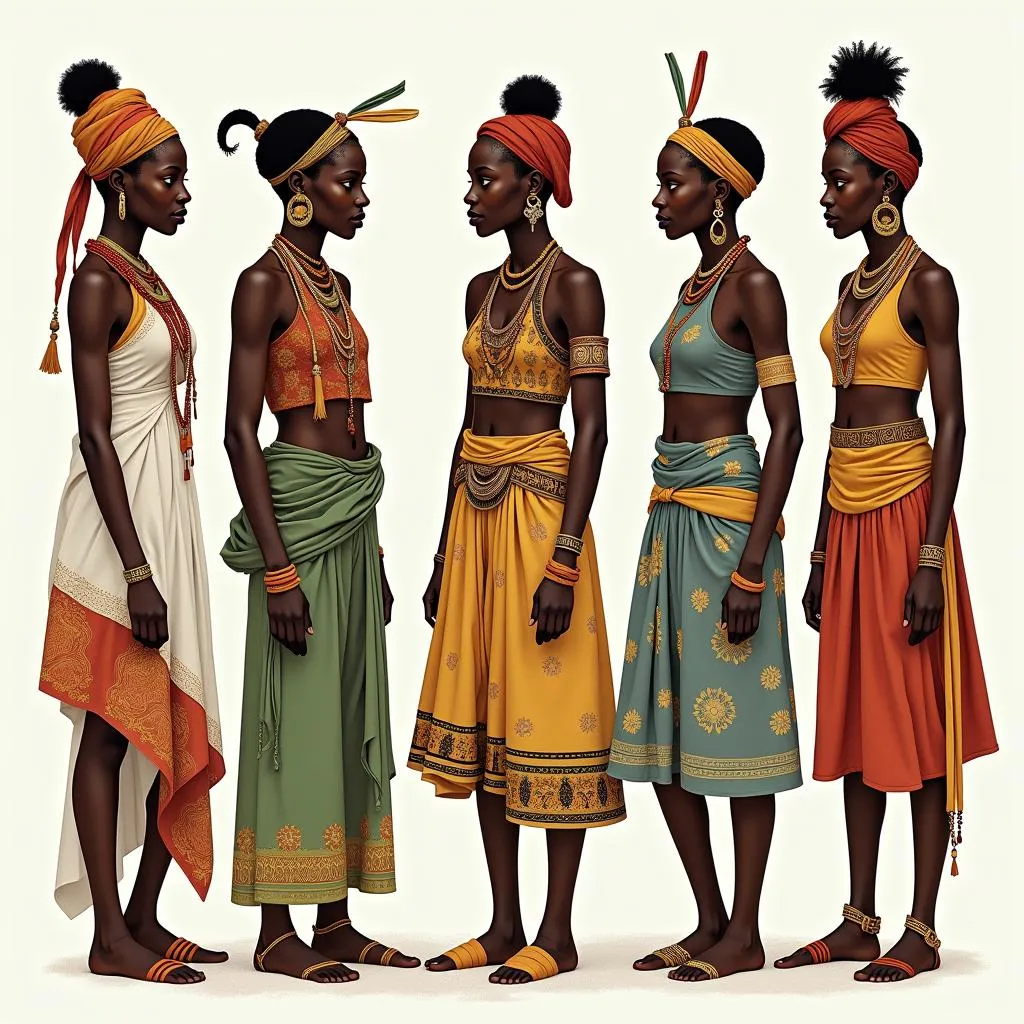Exploring the Rich Tapestry of African American Symbols
African American Symbols represent a powerful visual language, narrating stories of resilience, resistance, and cultural pride. These symbols, forged in the crucible of history, serve as a testament to the African American experience, echoing the struggles, triumphs, and enduring spirit of a community. From iconic emblems to subtle motifs, understanding these symbols offers a glimpse into the rich cultural tapestry that defines African American identity.
African American symbols encompass a wide range of visual expressions, including colors, shapes, objects, and figures. These symbols are not static; their meaning can evolve and adapt over time, reflecting the changing social and political landscape. For instance, the African American mask can be seen as both a symbol of African heritage and a tool for artistic expression in the African American community. Examining these nuanced meanings is crucial to understanding the complexity and depth of African American culture.
The Significance of African American Symbols in History
From the era of enslavement to the Civil Rights Movement and beyond, symbols have played a pivotal role in shaping African American identity. They have served as a form of communication, a means of resistance, and a source of strength and inspiration. For example, spirituals, encoded with messages of hope and freedom, became powerful symbols of resistance during slavery.
Understanding the historical context of these symbols is paramount. The meaning of a symbol can be profoundly influenced by the time period in which it was used and the specific circumstances surrounding its creation. This historical awareness is essential to appreciating the full significance of African American symbols.
Key African American Symbols and Their Meanings
Several symbols hold particular importance in African American culture. The Sankofa bird, for instance, symbolizes learning from the past to build a better future. Its imagery is often incorporated into African graphic design background representing the importance of history and heritage. The raised fist, a symbol of solidarity and resistance, has been used in numerous social justice movements. The colors black, red, and green, often associated with the Pan-African flag, represent Black liberation and unity.
These symbols are not merely static representations; they embody dynamic concepts that continue to resonate with African Americans today. They are a testament to the enduring power of symbolism in shaping cultural identity and fostering a sense of community. The African American family crest symbols also signifies the rich lineage and history that many African Americans strive to uncover.
African American Symbols in Contemporary Culture
African American symbols continue to thrive in contemporary culture, appearing in art, music, literature, and fashion. They are often reinterpreted and reimagined by contemporary artists, reflecting the evolving experiences and perspectives of the African American community. For example, the Afro pick, once a symbol of Black pride and the natural hair movement, is now also a fashion statement and a symbol of cultural expression.
Contemporary usage of these symbols demonstrates their ongoing relevance and enduring power to inspire and unite. Exploring their evolution within modern contexts provides valuable insights into the dynamic nature of African American culture.
Dr. Amani Kenyatta, a renowned historian of African American culture, states, “These symbols are not relics of the past but living expressions of a vibrant and evolving culture.”
How African American Symbols Reflect Identity and Heritage
African American symbols play a crucial role in shaping and reflecting identity and heritage. They serve as visual reminders of a shared history and a common struggle. They also provide a sense of belonging and connection to a larger community.
These symbols offer a powerful way to connect with one’s heritage. They provide a visual language for expressing pride in one’s identity and celebrating cultural traditions. They are a tangible link to the past, offering a sense of continuity and grounding in the present.
Professor Zora Neale Hurston, an acclaimed anthropologist and folklorist, notes, “Symbols are the shorthand of the soul.” They communicate complex ideas and emotions in a concise and powerful way. They are a window into the heart and soul of a culture. Some contemporary figures, like those celebrated in African American superstars, often draw upon symbolic imagery in their work, further cementing their connection to this rich heritage. Even something as seemingly simple as an African American poem about hats can evoke powerful symbols of identity and resilience.
Conclusion
African American symbols are a testament to the resilience, creativity, and enduring spirit of a community. They offer a powerful visual language for expressing identity, heritage, and cultural pride. Understanding these symbols provides a deeper appreciation for the rich tapestry of African American history and culture. Exploring their meanings and evolution offers a window into the ongoing struggle for social justice and equality.
FAQ
- What is the meaning of the Sankofa bird? The Sankofa bird symbolizes learning from the past to build a better future.
- What does the raised fist represent? The raised fist is a symbol of solidarity and resistance.
- What are the colors of the Pan-African flag and what do they symbolize? The colors are red, black, and green, representing Black liberation and unity.
- How are African American symbols used in contemporary culture? They are used in art, music, literature, and fashion, reflecting the evolving experiences and perspectives of the African American community.
- Why are African American symbols important? They are important for shaping and reflecting identity, heritage, and cultural pride.
- Where can I learn more about African American symbols? Numerous books, articles, and online resources provide further information.
- How do these symbols connect to current social justice movements? They continue to be used as powerful expressions of resistance and calls for equality.
Need support? Contact us 24/7:
Phone: +255768904061
Email: kaka.mag@gmail.com
Address: Mbarali DC Mawindi, Kangaga, Tanzania.

